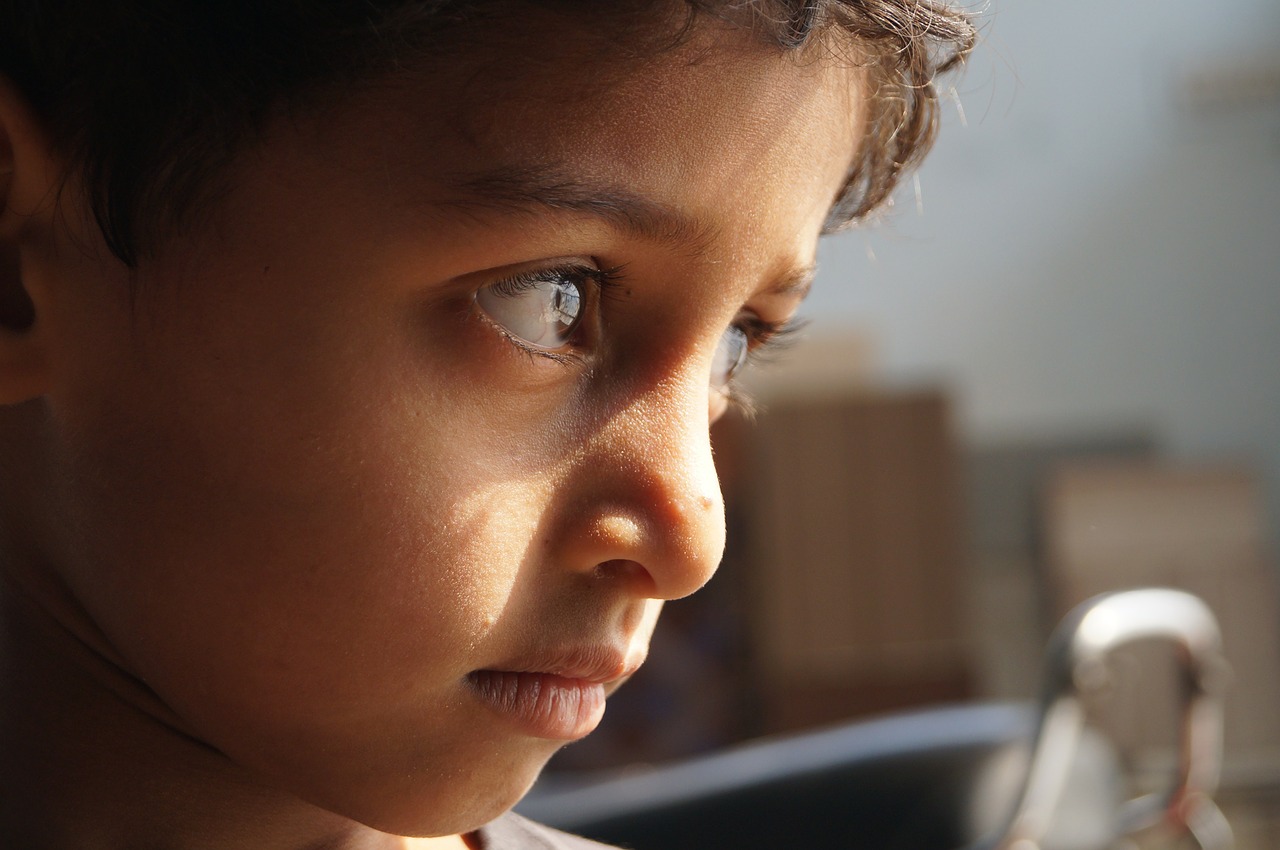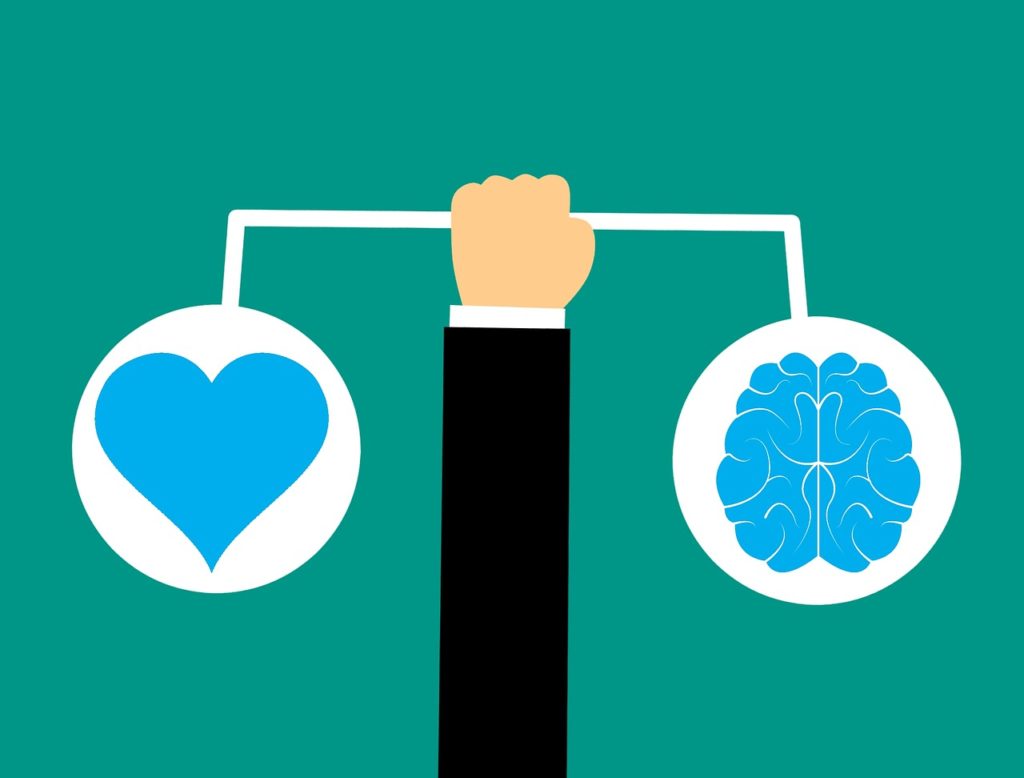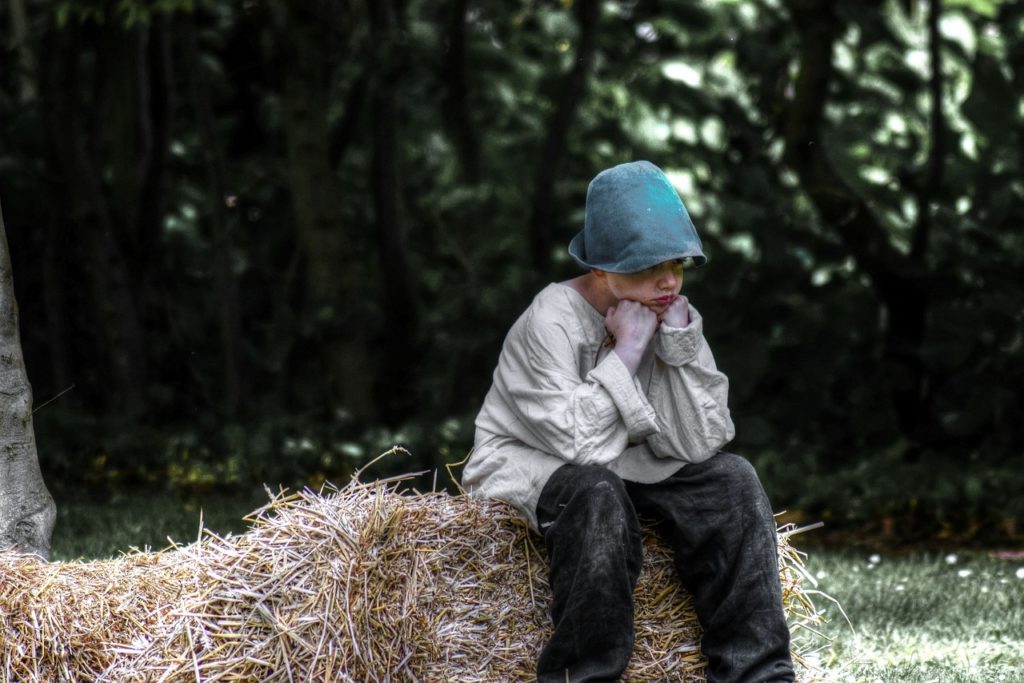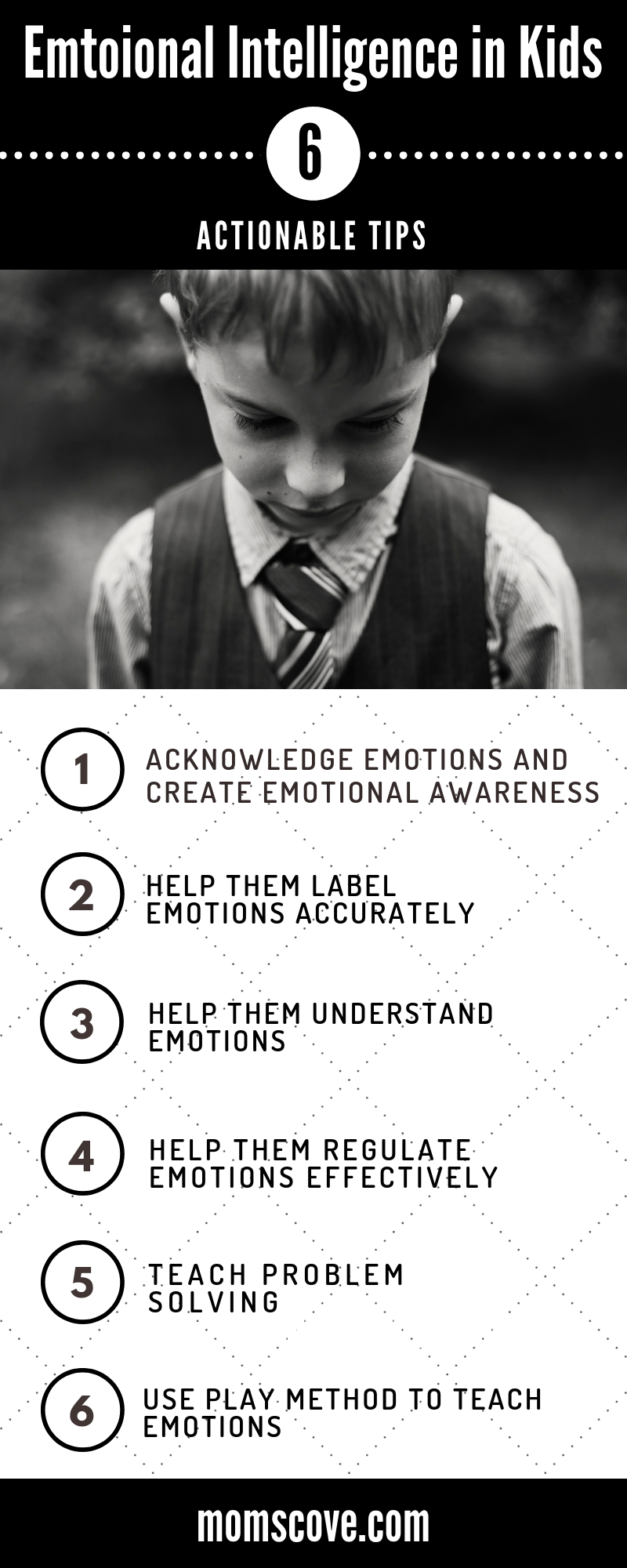
All parents want their children to become smart and intelligent. Don’t We? Teachers are also fond of intelligent students who perform and do good in exams. Until lately, other aspects like social skills and emotional skills are given less attention. The only thing we cared about and talked about is intelligence all the time. But how about emotions for kids? Are they important?
What we actually want for our children is success and happiness in life. And we somehow end up believing that intelligence and good degrees can get our child all those.
But is intelligence everything for success? What do you think? Are we valuing the brain over the heart and soul?
IQ vs EQ: How does Emotional Quotient (EQ) compare against Intelligent quotient (IQ)?
Book Smart or Street Smart: which side of the debate you are in?
In this post, we will try to understand what is emotional intelligence and why is it important for our kids. Also, we will try to understand how can we nurture and develop emotional intelligence in children by adopting certain things in our parenting styles.

What is emotional intelligence and why is it important?
Emotional intelligence is also called the Emotional Quotient, or EQ. Simply put, it describes the ability to
- Monitor one’s own emotions as well as the emotions of others
- Distinguish between and label different emotions correctly
- and use emotional information to guide one’s thinking and behavior and influence that of others
Generally speaking people with high IQ tend to achieve more academically, often earn more money, and generally tend to be successful. However, today’s experts feel that there are other factors in life that could significantly impact one’s success. All intelligent people are not high achievers in life and the Correlation between IQ and success is far from perfect. Moreover, IQ doesn’t correlate well with so many important things in life like-
- Success in relationship
- Overall satisfaction in life and
- Happiness
Increasing emotional intelligence in children, who will grow up to be emotionally intelligent adults, benefits both the child as well as society.
Do you want your intelligent kid to become a doctor who cannot win the trust of this patient?
How would you like an extremely intelligent police officer who fails to demonstrate empathy towards people, say, riot victims or rape victims?
How good is an extremely intelligent business school graduate, CEO of a company, without leadership qualities? Or how about politicians who cannot become leaders?
I think by now you must have understood why emotional intelligence in children is important for the child and the society at large.
Emotional vulnerability in children:

With rapidly changing social structure and social values, person-to-person interaction has undergone dramatic change. Most children grow up in nuclear families with busy parents who fail to give them the time they deserve. On top of that, there is always the pressure of performance in the rat race of success. The school performance in children is getting better. It is apparent that children learn and know a lot of stuff at an early age. Children are smarter today. But can we say that for soft skills as well? Have you tried to find how our children are doing in terms of ‘people skills’ and ’emotional skills’?
- Are children also getting better at making friends, being helpful and empathetic?
- Are they good at opening up and sharing how they feel about something?
- Can they cope well if they lose a game or don’t score well in an exam?
I think this is getting muddy in this area. Though Feeling comes naturally to them, emotions for kids are like a roller coaster ride. They may, over time, learn to tame it and enjoy it or may remain clueless about what to do about them.
Children are becoming more emotionally vulnerable
A Canadian study in kindergarten students showed that though language and cognitive competence were improving, the emotional vulnerability of children is on the rise. Even when you look around, children seem to be managing their emotions less effectively. Suicides in children are extreme examples.
Suicides in children on the rise
According to a post in Economics Times, a student commits suicide in India every hour. It is also known that suicides in young people peaks during exam season. Though mental illness can explain many of these cases, yet most of them do not have any such condition. A post in psychology today quoted a study by Sheftall and colleagues that only one-third of the children who commit suicide have a mental disease. Another terrifying finding was that only one-third of these children ever told anybody about their intention. Maybe they never thought they could share their problem with anyone.
This is just about suicide, an extreme step and just the tip of the iceberg of problems that children are having.
Components of EQ and how it helps your child?
According to Daniel Goleman, there are five components or elements of emotional intelligence. I have tried to describe these in the context of a child but you can easily relate that these virtues are priceless skills as they grow up.
Self-Awareness
- Emotional awareness: It is the awareness about one’s own emotions and their effect. This also includes the ability to name an emotion a child is experiencing (emotional vocabulary).
- Self-assessment and insight: The child learns to look inside himself or herself and recognize his/her strength and weakness (or lesser strengths you may call it). It gives the child an awareness about themselves and helps with a lifelong learning habit by focusing energy on the lesser strengths, may it be social skills, emotional skills, hands skills, or brain skills.
- Self-confidence: accurate self-assessment, in turn, leads to sureness about the child’s capabilities and his or her own worth. And Self-confidence is so much important for a child’s overall development and invaluable core personality trait.
Self-Regulation
Once your child is aware of the emotion he/she is undergoing, the next step is to regulate the emotion. You don’t want your child to be controlled by the emotion; rather you want your child to be able to control his or her emotion.
Are you with me on this? Let us see what are the virtues that can be related to self-regulation.
- Self-control: Once the child is able to regulate his emotions he can exercise better self-control. Acting out of disruptive emotions like anger, jealousy, hopelessness can cause damage beyond repair. Also, self-control puts a break on impulsiveness and the benefits are self-explanatory.
- Trustworthiness: The ability to self-regulate helps the child maintain standards of honesty and integrity that he intends to demonstrate.
- Conscientiousness: Self-regulation together with self-awareness helps your child take responsibility for his personal performance
- Adaptability: It helps children with flexibility with handling changes
- Innovativeness: This helps children to be comfortable with open and new ideas which are important skills for learning and creativity.
Motivation:
Children with higher EQ are usually motivated from within
- Achievement: they already know their strengths and weaknesses and strive to improve and meet standards of excellence.
- Commitment: They can make a commitment and pursue a goal commonly agreed upon with parents
- Initiative: They develop an internal drive to act when they see an opportunity
- Optimism: They have hope and optimism. They continue to persist despite coming across hurdles and setbacks on their journey to success.
Empathy and social awareness:
- Empathy: It is a state of understanding of the emotions of others and what others are going through at that moment.
- Social awareness: includes skills like orienting one’s goals with the group’s or organization’s goals, recognizing others’ weaknesses, and bolstering their abilities and political awareness.
Social Skills
This is the last facet of emotional intelligence. This includes skills like communication, bond, leadership, problem-solving, conflict resolutions, etc.
You may want to read our article:
Emotional development in children

Children grow in many ways as they become older. Apart from the increase in size they also develop by acquiring new skills and abilities. This includes developing
- Motor or movement skills like the ability to sit, stand, run, go up and downstairs, etc
- Fine motor skills like holding a pen and scribbling, turning pages, etc.
- Language skills: from babbles to rhymes and beyond
- Social skills: looking at the eye and smiling, getting uncomfortable in the presence of strangers, waving bye-bye
Similarly, babies also get increasingly more aware and grow emotionally. Children learn to identify, express and manage emotion in a step-by-step manner. Initially, they recognize joy, anger, sadness, and fear. By the time they are around one year old, they begin to develop a sense of self and autonomy. Gradually as they grow older more complex emotions for kids like shyness, elation, embarrassment, shame, guilt, pride, empathy, etc develop. Learning about emotions is a continuous process that continues till adulthood. Primary school children are still in a phase where they are learning to identify (and name) the emotion they are experiencing, what gave rise to it and what to do with (manage) it.
Primary school children are still in a phase where they are learning to identify (and name) the emotion they are experiencing, what gave rise to it and what to do with (manage) it.
Upbringing affects the child’s reaction to emotion
Now, how your child will react to a certain emotion depends on several factors. It is natural to think that it depends on the child’s temperament. Age is a big factor. A 10-year-old perceives and emotionally reacts to a situation in a much different way than a 3-year-old. But other factors like values and beliefs, emotional learning by observation and experience, and level of stress play a big part.
Both nature and nurture matter when it comes to emotional intelligence in children.
Emotional Coaching for Kids: Four key aspects

How can kids control their emotions?
According to emotional intelligence’s “founding fathers” Salovey and Mayer, there are four distinct dimensions or “branches” of emotional intelligence that form a hierarchy of emotional skills and abilities. Using this we will try to understand how we can incorporate certain things in our parenting that help our children to be better with emotions.
1. Perceiving emotion:
Emotions are natural feelings that come to everyone when triggered. But a child may not know their own feeling. What does the irritation in their head mean? Why I am feeling this racing in the heart or say butterfly in the stomach.
How do you explain sadness to a child?
As we take enough time to teach them A for apple and B for the ball or teach them where are their nose and eyes, do we teach them what is anger and what is jealousy? Before they learn to manage emotions we need to teach them to perceive and identify the emotion. We need to teach them emotional vocabulary.
Why are you so sad today?
Are you feeling bad that you could not win the race?
Put questions that trigger thought and encourages them to describe what they feel, and take the opportunity to teach them how to describe their emotions. Use a rich emotional vocabulary while you talk. Use words like angry, jealousy, scared, etc contextually so that they can understand their meaning.
Are you scared of the dark?
Why did you not congratulate John for scoring the highest? Were you not happy for him? Did you feel jealous?
2. Using emotions to facilitate thought: This involves redirecting and prioritizing one’s thinking based on feelings associated with those thoughts. This helps with better judgment, memory and increases problem-solving skills.
3. Understanding emotions: This includes
- understanding relationships among emotions
- Recognizing the causes and consequences
- understanding complex emotions and contradictory states
4. Managing emotions:
This involves being open to both pleasant and unpleasant emotions and managing emotions within oneself and in others.
How do Parents handle Child’s emotions?
The good news is that we can be mindful of a couple of things that can increase emotional intelligence in our kids. Different parenting styles can affect your child emotional skills
According to Dr. John Gottman parents responds to the emotions of children in four possible ways:
1. Dismissing parents: this group of parents sees emotions` as unimportant and tries to eliminate them by distractions.
2. Disapproving parents: This group of parents disapprove of negative emotions as unacceptable and squash the emotion by threatening or punishment.
3. Laissez-faire (Let Do): This group of parents accepts all types of behavior but fails to channelize it or put a limit on acceptable behavior.
4. Emotional coaching parents: These parents in addition to accepting these emotions help children to identify the emotion and guide them to solve the problem at hand.
Which group do you fit into?
How can we nurture emotional intelligence in children? Actionable tips for parents

1. Acknowledge emotions and make a child aware of emotions
Allow the child to express both positive and negative emotions….even the darkest ones. Recognize emotion as an opportunity to connect with your child and also as an opportunity for teaching. Acknowledge your child’s perspective and tell him/her that you understand how he/she feels. The feeling of being understood makes them feel safe and helps them let go of troubling emotions.
Making your child feel understood doesn’t mean you agree with him. It’s just that you understand how he feels.
- “I understand that you want to keep playing but it’s time for sleep, come on.”
- “You are so upset that Papa didn’t get you the toy, aren’t you?”
2. Help them label emotions accurately
a. Teach to recognize emotions in self and others
Teach your child to recognize his emotion. Whenever they express an emotion we use appropriate vocabulary.
- “Are you mad at your dad that he couldn’t take you out?”
- “I understand that you are sad because you missed a question (test), but it’s okay”.
Teach them to recognize the emotion of others. Recognizing emotions in others help them to demonstrate empathy and develop communication skills.
- “Don’t bother your mother now. Can’t you see she is upset”?
- “Let’s go and visit Nancy, she is sad because she lost her puppy”
b. Expose them to all sorts of emotions
We as parents tend to become an ’emotional shield’ for our children. Parents don’t want to expose our child to negative news and sad stories thinking that they will get hurt. We hardly discuss with them stories or news involving negative emotions like loss, failure etc. As parents, we only like to show them happy movies and happy stories.
- Would you share with your kid that you lost your job today?
- Do you ever narrate stories to a kid that do not have a happy ending?
We should realize that these are all opportunities for learning emotions and we should expose them to all types of emotions so that they can understand, discuss and recognize these emotions.
3. Help them to understand emotions and how emotion affects thought
Allow children to express their emotions. Both positive and negative emotional expressions are a potential teaching-learning opportunity for emotional skills. The following steps will help them understand their emotions and how emotions can affect their thoughts.
a. Listen and validate emotions
Listen to your child and encourage him to narrate how he feels. Also, look at his body language to understands how he feels and helps him with appropriate vocabulary. Help him label emotions accurately. Once you understand what your kid is going through, let him know that you understand him/her.
Validating means making him recognize and label his emotions accurately. It does not mean you agree with him. Validating your kid’s feelings will allow you to keep your ego and desire to lecture in check. You don’t get to judge him/her either (even if you think that it’s unreasonable).
The feeling that someone understands him and there is someone he can share his feeling without being judged is very comforting.
b. Help him understand the causes and consequences
As you discuss his emotions, also help him reflect upon what could have caused this negative emotion. Understanding the cause is an important step in regulating emotions later on. Also, certain emotions (or expressions of emotion in a certain way) may have consequences. This also should be part of your discussion.
Never tell your kid that negative emotions are bad and acceptable. Because emotions are not under our control, our actions are.
If you tell your child that feeling jealous is bad. He will feel that emotion anyway (it’s not under his control) but he will judge himself to be a bad boy for feeling a bad emotion (because that’s what you told him ). This will hurt his self-esteem and overall ability to regulate emotion in a healthy way.
Also, talk about your emotion to your child. Share your weakness and failures with your older kid. Be realistic and don’t try to be a superman or superwoman in front of your kid.
Another good way to discuss and understand emotions is to use movies and books for what you can call emo-tainment. If you are watching a movie together you can discuss the emotions experienced by a character. How is the character feeling? What is called that emotion? How he should respond to it etc. If you are narrating a story use emotions in narration. The same exercise as movies can be done here too.
c. Allow them to describe how they feel
Do not dismiss your child’s emotion and allow them to express it. Take the opportunity to teach them how to express and handle emotions. Don’t try to fix their feelings for them or try to tell them how they should feel. As discussed earlier, listen without judgment. However, you will have to tell them about ways to express emotions appropriately.
Don’t tell them how to feel. Feelings are not under their control and all emotions, even the darkest ones are acceptable. But tell them how to express these emotions in an appropriate manner. How they should respond and not react. Also, encourage them to reflect upon their past behavior and encourage them to decide for themselves if that was acceptable if they could do better.
d. Emotions are all acceptable- choose expression carefully
All emotions are acceptable, but all reactions may not be.
- They should know that being angry is okay but smashing things due to anger is not okay.
- Being jealous is okay but harming one out of jealousy is not okay.
Slowly they will learn to feel their emotion, name it appropriately and choose an appropriate reaction. They know that they are free to feel emotions without judgments but all reactions may not be acceptable. So they will have to choose their reactions carefully. Also by reflecting upon their past experiences, it will give them valuable learning resource for the future and they will get better each time.
e. Teach empathy and communication skill
Understanding the emotions of others lets them demonstrate empathy and communicate effectively.
4. Help them Regulate emotions effectively
Once they learn to name their emotions properly, know what is the cause of this emotion, and learn to accept the emotion but are mindful of the expression, the next step is to try and regulate emotions.
Two major aspects are:
a. Impulse control
Teach them how acting impulsively may land up in a situation which they might regret later. They May feel emotion but they should learn to defer the expression and choose how to express in an acceptable manner. They need to learn that actions in impulse may have consequences.
b. Self-soothing and self-talk
Sharing emotions to a person who understands and helps in getting over a feeling. In this case, you have to give adequate assurance to the child that you are there to listen to their feelings without judgment. However, in this case, he is dependent on the listener. But as children grow older they have to learn to soothe themselves by self-talking.
eg: How does a 13-year-old son react when his girlfriend ditches him for another guy
5. Teach Problem-solving
Your child has to swim through the muddy field of emotions and solve problems in life without sinking in emotional quicksand. He has to feel the emotion, understand it and manage it and go past it to solve problems. Usually feeling understood lets a child dissipate the emotion and he is ready to go and solve the problem. However, sometimes they will need some help. But don’t rush to solve it for them- help them solve rather. You don’t want to tell them that “I don’t have confidence in your ability and hence I am solving it for you”.
6. Use the Play method to teach emotions to kids
Kids process their emotions with play. They experience big emotions all the time. They feel frightened, sad, angry, or jealous. He may not be able to give words to deeper emotional conflicts but he may be able to play it out.
This article on aha! parenting gives a very nice example
For instance, maybe your four year old always wants Mommy. Instead of taking it personally, help him work through his feelings about how much he prefers Mom by playing a game where poor bumbling Dad “tries” unsuccessfully to keep him away from her. Dad gets between Mom and son, and roars “I won’t let you get to Mom….Hey, you just ran right around me!…You pushed me right over!…You are too strong!….But this time you won’t get past me!”
Your four year old will giggle and boast and get a chance to prove he can ALWAYS have his mom. He’ll also discharge all those pent up worries that make him demand her.
Conclusion:
Building emotional intelligence for kids is a vast topic and a sensitive one. Children learn by seeing and imitating and not by lecturing. So, if we parents incorporate these things in our lives and take time to learn and demonstrate better emotional intelligence, our kids will be better off.
Nevertheless, a humble beginning would be to realize that IQ is not everything and we must pay attention to the emotional skills and emotional well-being of our children.
Good day I am so glad I found your website, I really found you by mistake, while I
was looking on Google for something else, Anyways I am here now and
would just like to say thanks for a marvelous
post and a all round enjoyable blog (I also love the theme/design), I don’t have time to read through
it all at the minute but I have bookmarked it and also added your RSS
feeds, so when I have time I will be back to read a lot more,
Please do keep up the awesome work.